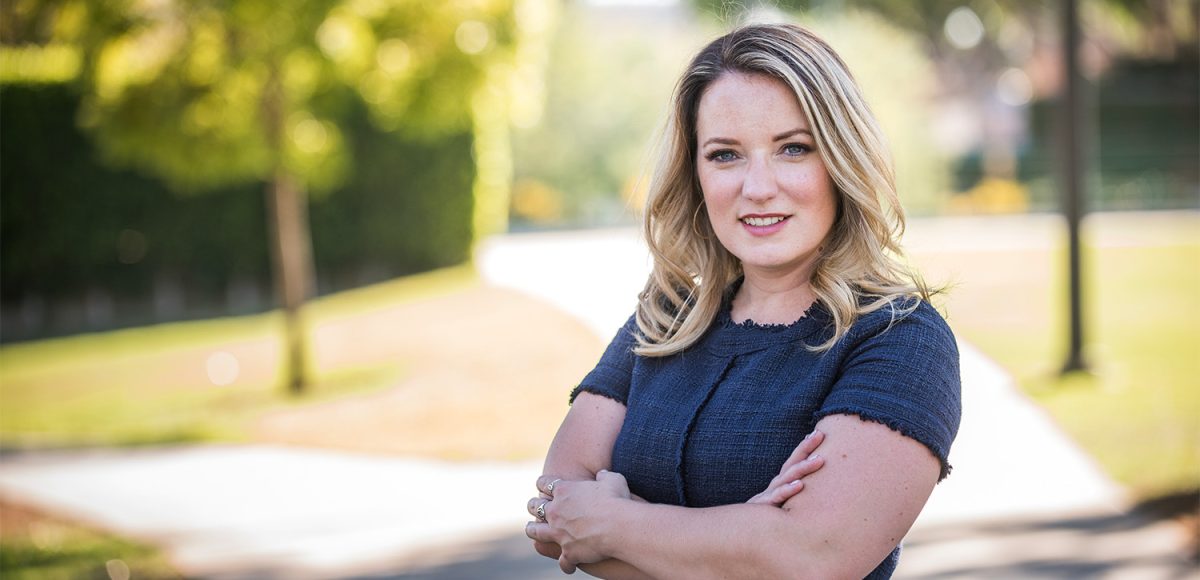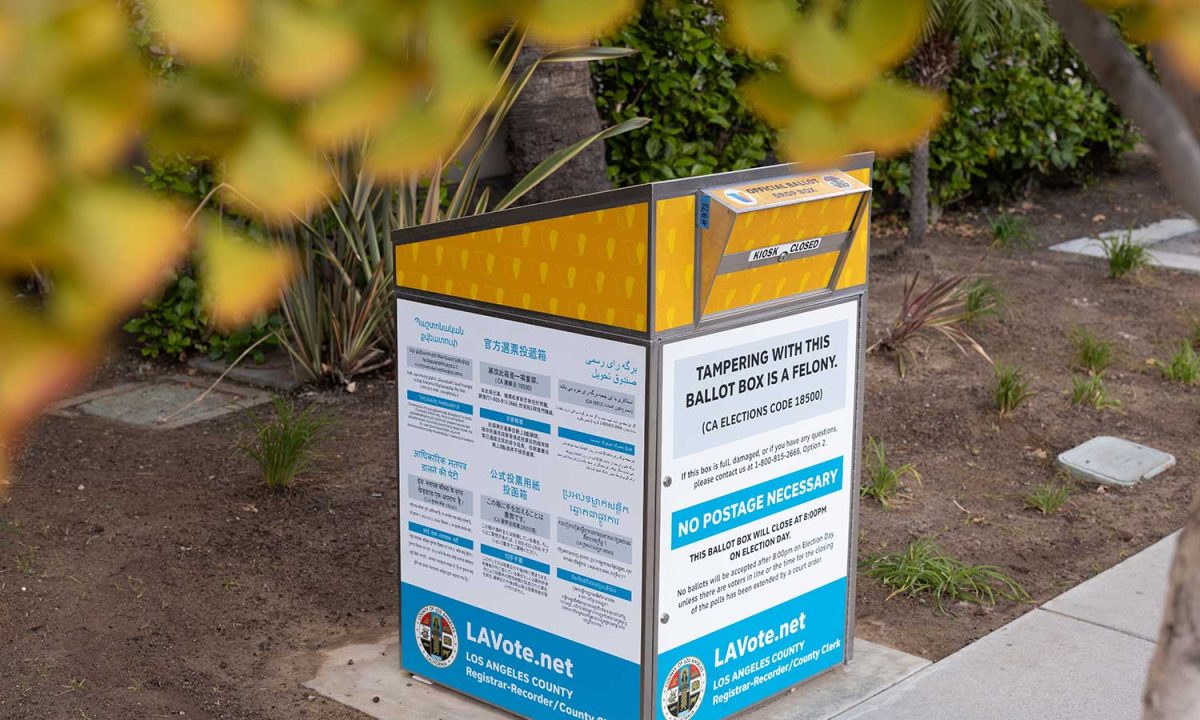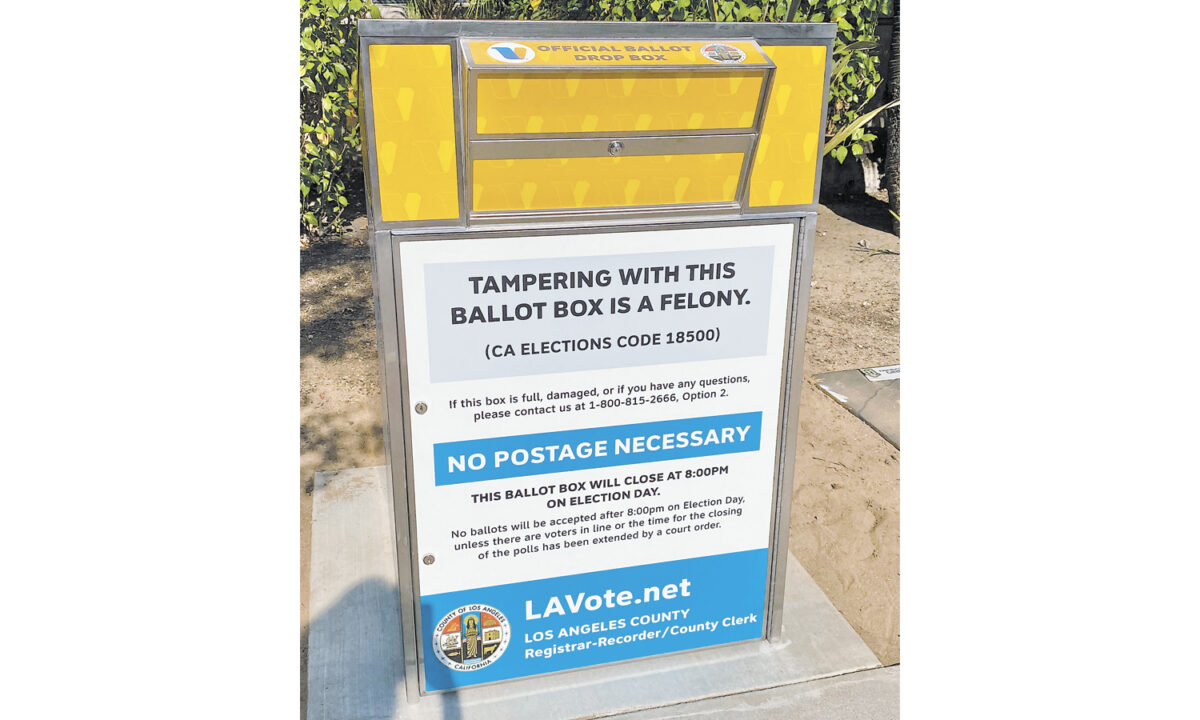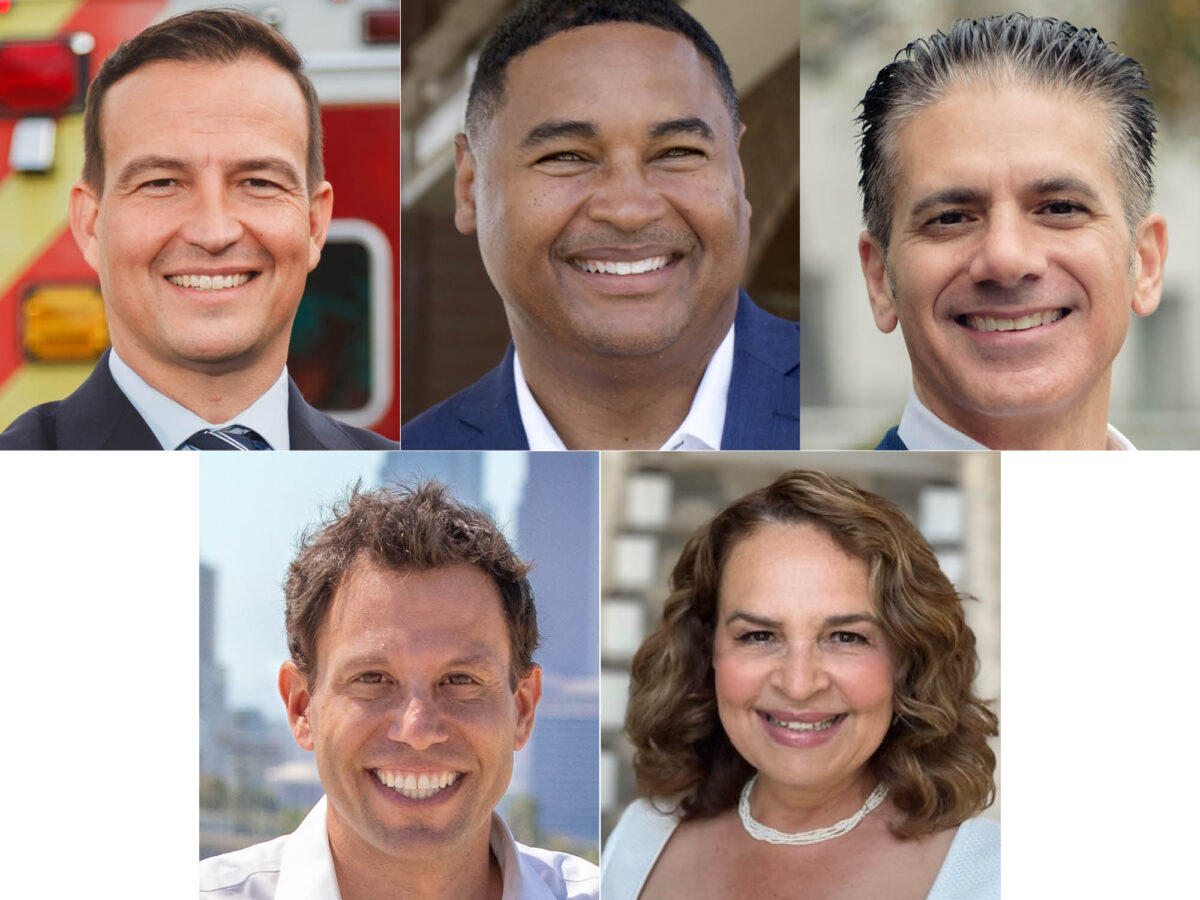On Nov. 8, voters will choose a new Los Angeles County Supervisor for the powerful 3rd District seat currently held by Sheila Kuehl, who is retiring. The district, which includes Beverly Hills, stretches from Santa Monica and Malibu to the San Fernando Valley and out as far as Westlake Village. Its population of 2 million residents exceeds that of 14 states. Contending for the seat are two high-profile runoff candidates, West Hollywood City Councilmember and two-time Mayor Lindsey Horvath and State Sen. Bob Hertzberg. Both have granted interviews to the Courier about the most pressing issues in this high-stakes race. Part One of this series will spotlight Horvath. Part Two will appear in the Oct. 28 issue of the Courier and will feature Hertzberg.
BHC: Crime is a paramount issue on the minds of voters right now. Cities such as Beverly Hills are dedicating extra resources to its police department. This past summer, you cast a vote in West Hollywood that was widely seen as part of the “defund the police” movement. Can you explain why that is a mischaracterization of your actions?
Horvath: Yes, and thank you for asking about that. First of all, I want to make it clear that I share the concerns of our neighboring cities and other cities in our region. There is a perception of a “defund movement” that was all about our city canceling a contract with the Sheriff’s Department. We didn’t do that. I want to be crystal clear. What we did in West Hollywood was to exponentially increase our spending on public safety. We authorized the largest ever contract with the Sheriff’s Department in the history of West Hollywood. We added one deputy to our entertainment policing team. We invested in public safety. So, what we did was to greatly expand our security ambassadors on patrol so there are more eyes and ears on the street.
Many people don’t know that one Sheriff’s Deputy costs West Hollywood nearly $400,000. I support fiscal responsibility especially when it comes to keeping people safe. I have consistently supported an increase in funds for training. Every single dollar that we spend on our Sheriff’s Department and on public safety overall needs to be actually doing that. My opponent supports the status quo and we have seen that the status quo hasn’t kept people safe. Nobody feels safer after four years of Sheriff Villanueva. I want to make sure that instead of spending money on liabilities, on deputy gang involvement and abuses in Men’s Central Jail, that we are actually spending that money to fight violent crime instead of being the cause of violent crime.
Can you explain how the expanded security ambassador service works with the Sheriff’s Department and other resources in West Hollywood?
Yes, there are actually three different ways to get help. If someone calls 911, that call is still going to the police. Every call to our Sheriff’s station goes directly to law enforcement. There is a separate number if someone wants to call our security ambassadors for help. You can call them to walk you home from a nightclub. You can call them if you see someone sitting on the street corner and you don’t know what’s going on with them. That’s what our security ambassadors are for. They are on foot and on bike patrol and we’ve expanded them in our neighborhoods to address those times when maybe you don’t want to call a Sheriff’s Deputy. The security ambassadors are coordinated with our law enforcement so if they show up and find that they can’t handle the situation, they can get the Sheriff there.
And, then there is a third option that was instituted throughout the country and L.A. County is responsible for how it operates for us locally. It exists in West Hollywood and Beverly Hills and throughout L.A. County, and that’s 988. Everyone is encouraged now to call 988 instead of 911 if you think someone is having a behavioral health crisis. If the matter is not about someone’s safety per se but they need a social service. Maybe they are having a mental health episode or experiencing homelessness. You can call 988. Those calls in L.A. County go through Didi Hirsch (Mental Health Services). The county has a few dozen teams to dispatch if a call comes in to 988.
But in our city, we decided that we wanted to have our own behavioral crisis response teams dedicated to West Hollywood. We are working with the county so when those calls do come into 988, we can have a much faster response. We know that if people call 988 and they don’t have the same rapid response as 911, they are just going to call 911. So, we decided to invest in mental health behavioral crisis response teams. We’re building that out in addition to our security ambassadors and in addition to our Sheriff’s contract so each of those things exist and they will all work together. We don’t see homeless encampments in West Hollywood; it’s because we have responsiveness at the local level that addresses those issues. We need that kind of responsiveness county wide. It is a net gain for law enforcement and protection of people.
The role of a County Supervisor is much broader than that of Mayor or Councilmember. Aside from the public safety arena, what other experiences in West Hollywood give you qualifications to be a Supervisor?
I led West Hollywood during the COVID-19 crisis and am proud of the services we were able to provide, from rental assistance to meals for those who needed them, to testing sites. We helped business stay open by expanding their outdoor facilities. I’ve held leadership roles in statewide organizations, in the League of Cities and other groups where I’ve worked closely with our neighbors. I’ve been lucky enough to work with your own Councilmember, Dr. Gold. We worked together to address the needs of all the cities that contract with the county, and I know it provided critical needs. I’m interested in bringing these solutions to the region. I know that Los Angeles residents are frustrated with navigating the city bureaucracy; let alone the county. What I’m trying to do in this moment is to bring us back home into our neighborhoods and restore some of that local control where we actually have a say. I have worked directly with neighborhoods and partnered with colleagues on a local level.
L.A. District Attorney George Gascón recently survived a contentious recall campaign that you did not support. What is your position on Gascón?
I’m going to give you a little context. Several years ago, we were once again in the headlines during the term of Jackie Lacey. We had a serial predator named Ed Buck. Jackie Lacey was the District Attorney. I called her five days in a row, and she never once returned a phone call. When you have someone in your community reaching out and you won’t even return a phone call, what does that say? She lost my confidence, and I could not support her. Buck is now behind bars on nine federal counts because our own D.A. wouldn’t take up this issue.
As for the Gascón recall, I don’t support continuing to invest in political solutions. The recall tool in this case was a political way to remove him and that’s what elections are for. We need direct accountability from our elected officials to make sure they’re delivering what we expect. Gascón should be held accountable to deliver on the expectations we have for the office of District Attorney. When he’s up for reelection he will answer to the voters that he serves. My hope is we can get the conversation out of the political space and into the accountability space which is where most people want to see results.
You are endorsed by the outgoing Supervisor Sheila Kuehl. What does it mean to follow in her footsteps?
Sheila Kuehl is an icon. She made history as the first openly LGBQ member of the state legislature. She helped to enact very early legislation to protect women from violence and keep us safe. Of course, I want to build upon her legacy and that of Zev Yaroslavsky, who was very much present and engaged with our communities. But I will also say one way that we are different is that she came from Sacramento and I’m coming from the local level. I will be able to build upon some of the most important pieces of my experience and this is connecting people to the services and the county. I also want to note that I’ve been endorsed by a total of four of the sitting Supervisors.
Your opponent has pointed out that you have changed your party affiliation from Republican to Democrat and accuses you of flip-flopping on issues such as choice.
Well, he is the one who is currently on a panel coming up with former President George W. Bush. I have been very clear in my values. I’m endorsed by almost every Democratic club and by the Democratic Party in L.A. County as well as the Democratic Party of the San Fernando Valley, which started I am told, out of my opponent’s home in the 1970s before I was born. They still decided to choose me over him despite that long relationship with him. They’ve seen how he has failed on issues that are most important, whether it is protecting our environment and selling out to corporate polluters or social services and the support that people need to stay housed and be cared for. He hasn’t stepped up to do that work. I think that everyone has done things in their college years that they might have done differently when they have the wisdom that comes with age. I have been very clear in my commitment to supporting people and working with everyone to solve problems. It’s unfortunate he wants to be divisive, but he’s not right. He just wants to be divisive.
You and your opponent both have the same amount of public service experience, albeit in different forms. Why is he not as qualified as you to be the next Supervisor for the 3rd District?
The first step that any good local leader takes is to come into the community. He’s only worked in Sacramento. The one time he tried to serve as mayor, he did not succeed. He’s never had to work in that local level. He likes to work in backroom deals and the very partisan politics of Sacramento, and I don’t think we need that. He says he will make sure there is more funding for this or that. But throwing money toward a problem is not going to necessarily solve it. There is a $40 billion annual budget in the county. The county has a lot of resources to be making the right kind of change. I’ve implemented solutions during some of the most difficult times that a community can face. You’ve seen that my opponent tries to diminish my work. Men do that to women in elected office and in leadership positions across the board. But I think the voters are sick of that kind of politics. We need a different kind of leadership to implement the policies that are needed now and I’ve proven that I can be that leader.







